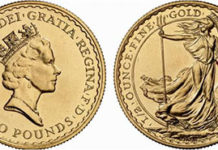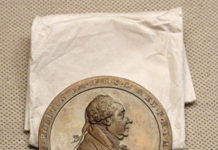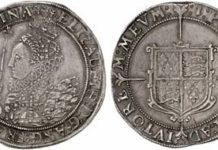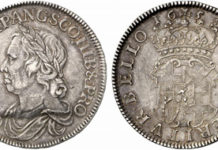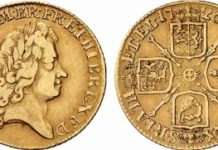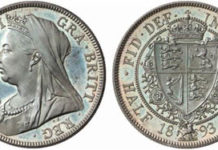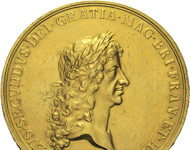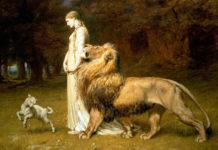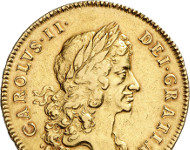Toward the Present: Elizabeth II
Since 1952 Queen Elizabeth II is reigning Great Britain. In 2012 she celebrates her Diamond Jubilee looking back on a period that has changed her country profoundly.
By examining 12 coins we have strolled through Great Britain’s history – this is the last part...
The Powers of the Soho Mint
William McKivor presents a medal from his own collection telling the history of its origin: It was struck in the Soho Mint in 1803, and played a role in an argument conducted in three countries in three languages on two medals, between the English manufacturer Matthew Boulton and the French Engineer J. P. Droz.
Elizabeth I – Ruler of the Seven Seas
The Virgin Queen she was called by her contemporaries – and she made them tremble. Elizabeth I was a key figure of the 16th century, her navy controlled the oceans, England flourished.
By examining 12 coins we are going to stroll through Great Britain’s history – this is part 7.
Ironsides of England: Oliver Cromwell
In the 17th century England experienced a period without king when the officer Oliver Cromwell was trying to establish a republic – even at the cost of precipitating the whole country into a civil war.
By examining 12 coins we are going to stroll through Great Britain’s history – this is part 8.
A Glorious Revolution
Besides the fear of having no king at all the English feared always the scenario of a Catholic king. In 1688 dread of becoming re-Catholicised led the aristocrats to call a Protestant from the Netherlands to be their new king.
By examining 12 coins we are going to stroll through Great Britain’s history – this is part 9.
A German on the British Throne: George I
To bar the Catholic Stuarts from the throne of England Queen Anne designated a German to become her successor: George I. But nevertheless he was a Protestant, the English were not satisfied with their new monarch.
By examining 12 coins we are going to stroll through Great Britain’s history – this is part 10.
Queen of an Empire: Victoria
Under Victoria I Britain’s Empire embraced the whole world. But the Queen drew back from policy and let the politicians govern the country. That system should never change any more. By examining 12 coins we are going to stroll through Great Britain’s history – this is part 11.
From the diary of Samuel Pepys
Samuel Pepys mentions a medal made by John Roettiers by order of the King of England in 1667. This intriguing piece will be auctioned at Künker’s on June 17. Here you can learn about the historical background.
The Faerie Queene
It is called the most beautiful of all English coins, the coin type of young Queen Victoria that depicts her as Una leading the British lion with her scepter. The motif harks back to a 16th century poem that praised yet another queen. The Künker summer auction now offers one of these rare specimens for a pre-sale estimate of 50,000 euros.
Great Britain’s 5 Guineas
Accidental attendees of the big English horse auctions in the 1960s were probably amazed to see that the bidding was still being done in guineas although the very last British guinea had been minted in 1813. Nevertheless, this denomination reflects the aristocratic way of life more than anything else in Great Britain.



